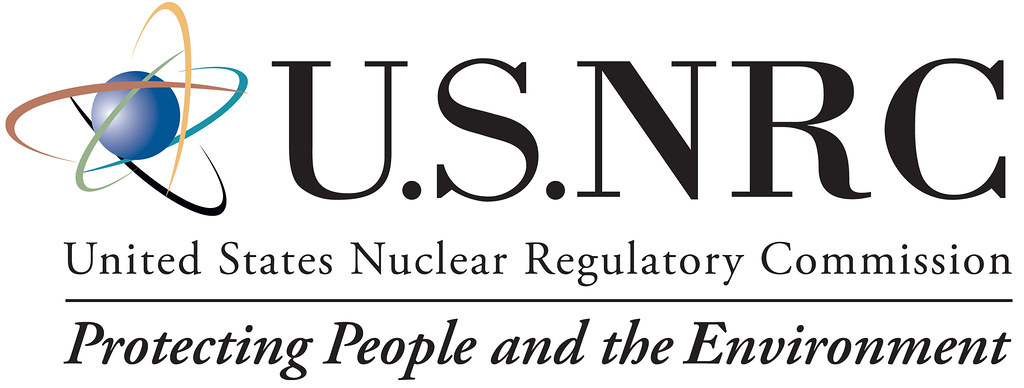Coupling Life-Cycle Impact Assessment and Risk Assessment for Sustainability-Informed Decision Making
Program overview
 This project is funded by the Nuclear Regulatory Commission (NRC). The U.S. Nuclear Regulatory Commission (NRC) was created as an independent agency by Congress in 1974 to ensure the safe use of radioactive materials for beneficial civilian purposes while protecting people and the environment. The NRC regulates commercial nuclear power plants and other uses of nuclear materials, such as in nuclear medicine, through licensing, inspection and enforcement of its requirements.
This project is funded by the Nuclear Regulatory Commission (NRC). The U.S. Nuclear Regulatory Commission (NRC) was created as an independent agency by Congress in 1974 to ensure the safe use of radioactive materials for beneficial civilian purposes while protecting people and the environment. The NRC regulates commercial nuclear power plants and other uses of nuclear materials, such as in nuclear medicine, through licensing, inspection and enforcement of its requirements.
Project summary
 To support the role of nuclear energy in the fight against escalating climate change, the nuclear enterprise must reframe critical assesssments that drive decision-making. Integration of life cycle assessment with radiological risk assessment will cross disciplinary boundaries, forcing clarity in communication of approximations and outcomes that will drive public confidence in the decision making outcomes. We propose to integrate life cycle impact assessment and risk assessment to provide regulatory guidance with respect to key fuel cycle issues, specifically a shifting fuel supply chain and an agi ng generation of nuclear power reactors. For t he former, a shift from U.S. dependency on nuclear fuel from Russia requires a clear assessemnt of t he risks and impacts associated with expanded U.S. uranium mining. For the later, life cycle impacts for decommissioning aging U.S. reactors will provide extended guidance for decision-making that can help avoid premature closure. Further, the potential for decontamination and reuse of construction materials after decommissioning may reduce the overall life cycle impacts of nuclear technologies. Overall, complex interdependencies of climate change, energy security, and aging nuclear infrastructure require interdisciplinary solutions.
To support the role of nuclear energy in the fight against escalating climate change, the nuclear enterprise must reframe critical assesssments that drive decision-making. Integration of life cycle assessment with radiological risk assessment will cross disciplinary boundaries, forcing clarity in communication of approximations and outcomes that will drive public confidence in the decision making outcomes. We propose to integrate life cycle impact assessment and risk assessment to provide regulatory guidance with respect to key fuel cycle issues, specifically a shifting fuel supply chain and an agi ng generation of nuclear power reactors. For t he former, a shift from U.S. dependency on nuclear fuel from Russia requires a clear assessemnt of t he risks and impacts associated with expanded U.S. uranium mining. For the later, life cycle impacts for decommissioning aging U.S. reactors will provide extended guidance for decision-making that can help avoid premature closure. Further, the potential for decontamination and reuse of construction materials after decommissioning may reduce the overall life cycle impacts of nuclear technologies. Overall, complex interdependencies of climate change, energy security, and aging nuclear infrastructure require interdisciplinary solutions.
We propose to integrate life cycle impact assessment and risk assessment to provide regulatory guidance with respect to key fuel cycle issues, specifically a shifting fuel supply chain and an aging generation of nuclear power reactors
 This project is funded by the Nuclear Regulatory Commission (NRC). The U.S. Nuclear Regulatory Commission (NRC) was created as an independent agency by Congress in 1974 to ensure the safe use of radioactive materials for beneficial civilian purposes while protecting people and the environment. The NRC regulates commercial nuclear power plants and other uses of nuclear materials, such as in nuclear medicine, through licensing, inspection and enforcement of its requirements.
This project is funded by the Nuclear Regulatory Commission (NRC). The U.S. Nuclear Regulatory Commission (NRC) was created as an independent agency by Congress in 1974 to ensure the safe use of radioactive materials for beneficial civilian purposes while protecting people and the environment. The NRC regulates commercial nuclear power plants and other uses of nuclear materials, such as in nuclear medicine, through licensing, inspection and enforcement of its requirements.